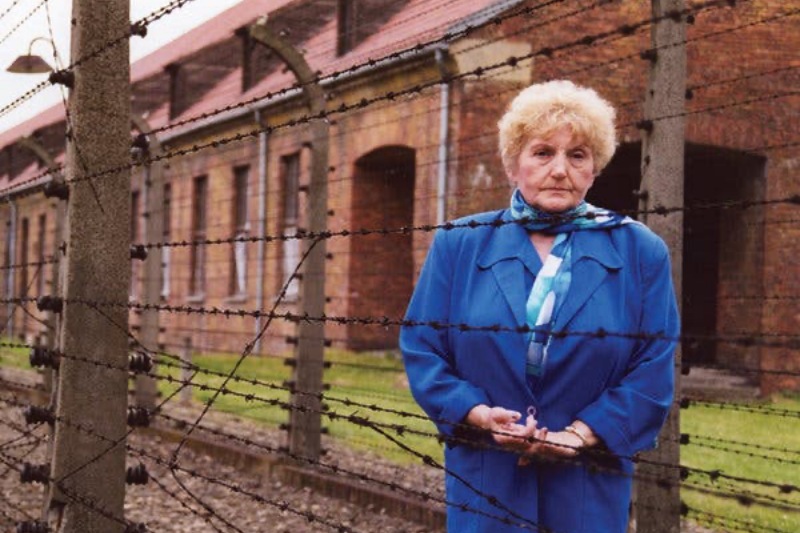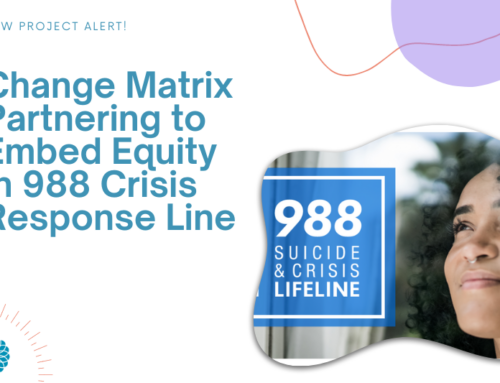It is 2020…100 years of women voting in this country. As we look back to notable moments like this in history, we celebrate women leaders and acknowledge that the path to gender equality has not been inclusive and we are still on it. For that reason, the Change Matrix team is sharing a series of personal essays about women. They might be women we know who were models or mentors and influenced us as professionals. They might be women whose work we have loved and integrated into our own. They might be about our identification as women through a cultural lens.
Karla
There are so many women that have inspired me professionally and personally. Most recently, I was inspired by Eva Mozes Kor. I hadn’t heard of Eva until I stumbled across a documentary entitled “Forgiving Dr. Mengele.” The title alone intrigued me, so I played the film and watched in anxious anticipation.
Growing up, I read many history books about the Holocaust, including some that described the “Angel of Death,” Dr. Josef Mengele, and his malicious scientific experiments – but I had never heard an account from the survivor’s perspective.
Eva lost her family to the Nazis. Her only surviving family member was her twin sister, and she died decades later because of a mysterious concoction she was injected with, by Dr. Mengele himself. As soon as she shares this horrendous and painful truth, Eva advises “Forgive your worst enemy: it will free your soul” (Forgiving Dr. Mengele).
Throughout the documentary, I saw how Eva’s forgiving character shaped her beliefs and cratered the magnitude of that statement. She was only nine when she was sent to Auschwitz to die, but she “refused” because she knew if she died, due to the nature of the medical experiments to which she was subjected, her twin would be rendered useless and put to death immediately. That motivation kept Eva alive for nine months before the Soviet army liberated the camp.
An elderly Eva states “we may not live in the past, but the past lives in us” (Forgiving Dr. Mengele). It took Eva decades to even begin thinking about forgiving Dr. Mengele, but when she finally did, she started talking about it in public forums and among other Holocaust survivors. Understandably so, many of the survivors she spoke with disagreed vehemently with the thought of forgiving the Nazis. Still, I remained curious and wanted to hear more about why Eva thought forgiveness was key to being liberated.
She stated that when the Soviets liberated her from the concentration camp, she did not feel liberated. It is the “power” to forgive a Nazi that reclaims one’s right as a human being; to forgive another for actions that were committed against one’s life, she shared (Forgiving Dr. Mengele).
The documentary featured the voices of survivors who spoke feverishly against forgiveness. Admittances of wrong-doings and apologies often feel so short. I can only image how insignificant they must feel when placed atop the weight of death, destruction, humiliation, and so many other atrocious transgressions.
And still, the fact that Eva, who was then but a little girl being tortured by the Nazis, could admit to herself, her fellow survivors, and even to a former Nazi that she forgives their actions, stuck me as admirable. It is bigger than I believe I would be capable of but feels like a step in a long process of healing and educating.
That she would share her story with viewers helps educate us. Mass education spreads knowledge to global citizens and reinforces the admittance that the genocide happened – that Eva’s story happened.
I am left feeling sad, hopeful, and encouraged by the story she shared. Eva Mozes Kor is a woman who encapsulates the meaning of survival, bravery, forgiveness, and liberation.




